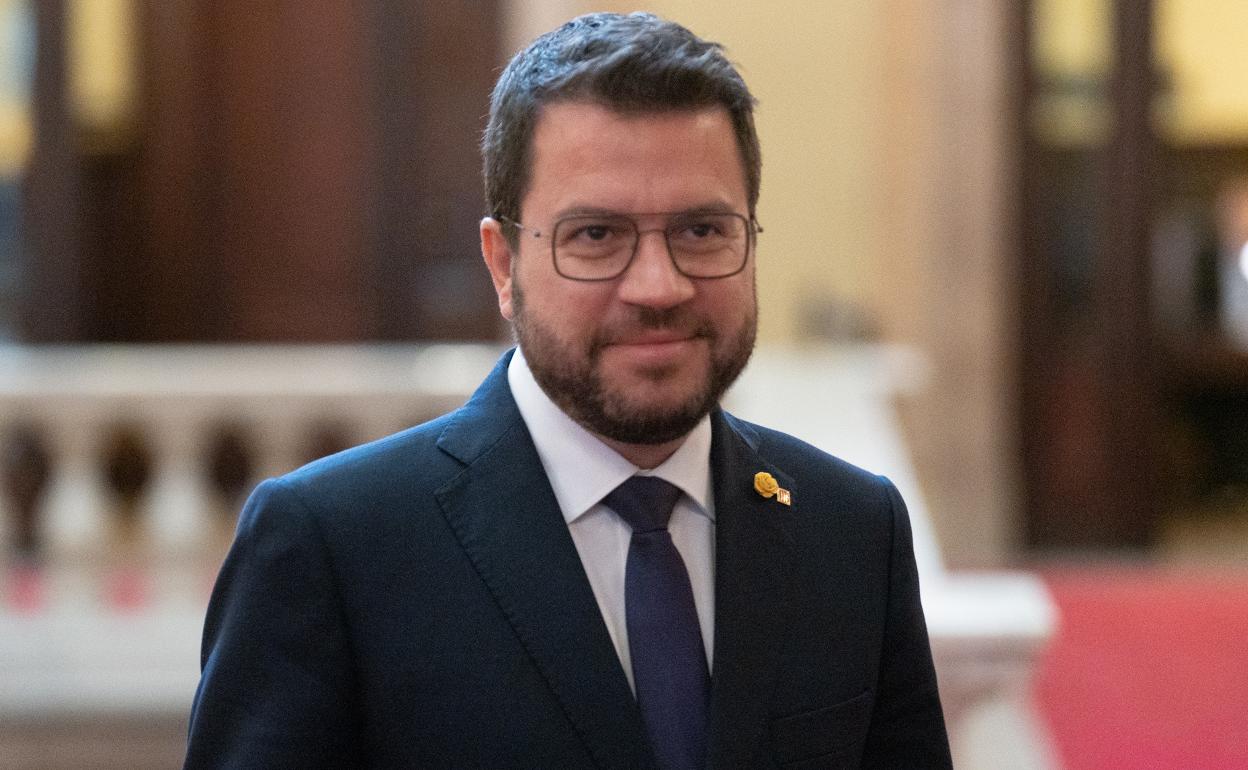Small talk
THE EURO ZONE ·
Why do Catalan separatists insist so much on having another referendum?When I interviewed Pere Aragonès, pro-independence president of Catalonia in August, we packed a lot into the allotted thirty minutes: how a potential Republic of Catalonia would rejoin the EU; the plight of Scotland's SNP, a party from which Aragonès takes inspiration; and his negotiations with Pedro Sánchez, which he hopes will somehow realise his teenage dream of Catalan independence. But it felt like (albeit fascinating) small talk, because Aragonès' real focus, the subtext to everything his government says and does, is also the most difficult goal to achieve: another referendum.
Tomorrow is the fifth anniversary of the chaotic day in October 2017 when Catalans voted to split from Spain, in a referendum declared illegal in advance by the Constitutional Court (known as 1-O). To mark the occasion, Aragonès announced this week that he seeks another vote on secession, this time legitimised by Madrid. Despite ongoing talks between the Catalan and central governments, though, this seems as unlikely to happen now as it did in 2017. So why do the separatists persist?
What struck me most about Aragonès was his possession of two apparently contradictory qualities: hard-headed practicality (he trained as a lawyer); and unfettered, soaring idealism. Aragonès insists that there are legal mechanisms to facilitate a vote on secession, and that a repeat of 1-O wouldn't necessarily violate the Spanish Constitution. But, like his unsuccessful predecessor Quim Torra, he cannot explain how he'll convince a cross-armed central government to collaborate.
There's also the question of whether Catalans actually want to divorce Spain. Polls usually show a roughly 50-50 split down the middle, but the most recent, published in March, suggested that support for the separatists is waning: only 38.8% of respondents said they wanted independence, while 53.5% said they opposed it.
The poll also revealed that 72.6% of Catalans want a legitimate, binding vote on independence. If Sánchez risked allowing one in the hope that it would return a "No" vote (a risk he'll never take), he could at least declare the matter closed for a generation.
Catalan separatists often look to Scotland for inspiration, so it's fitting that on the fifth anniversary of 1-O tomorrow, there will be a march for Scottish independence in Edinburgh. Indeed, the once-in-a-generation collaboration between Holyrood and Westminster that legitimised the 2014 referendum remains a gold standard for Aragonès, a model of democratic collaboration that Spain could - and should - emulate. Does the Spanish government share the same lofty aspiration? "Absolutely not," said its spokesperson this week.
So long as that's the case, it's hard to see how negotiations between Madrid and Barcelona can amount to anything more than small talk.

